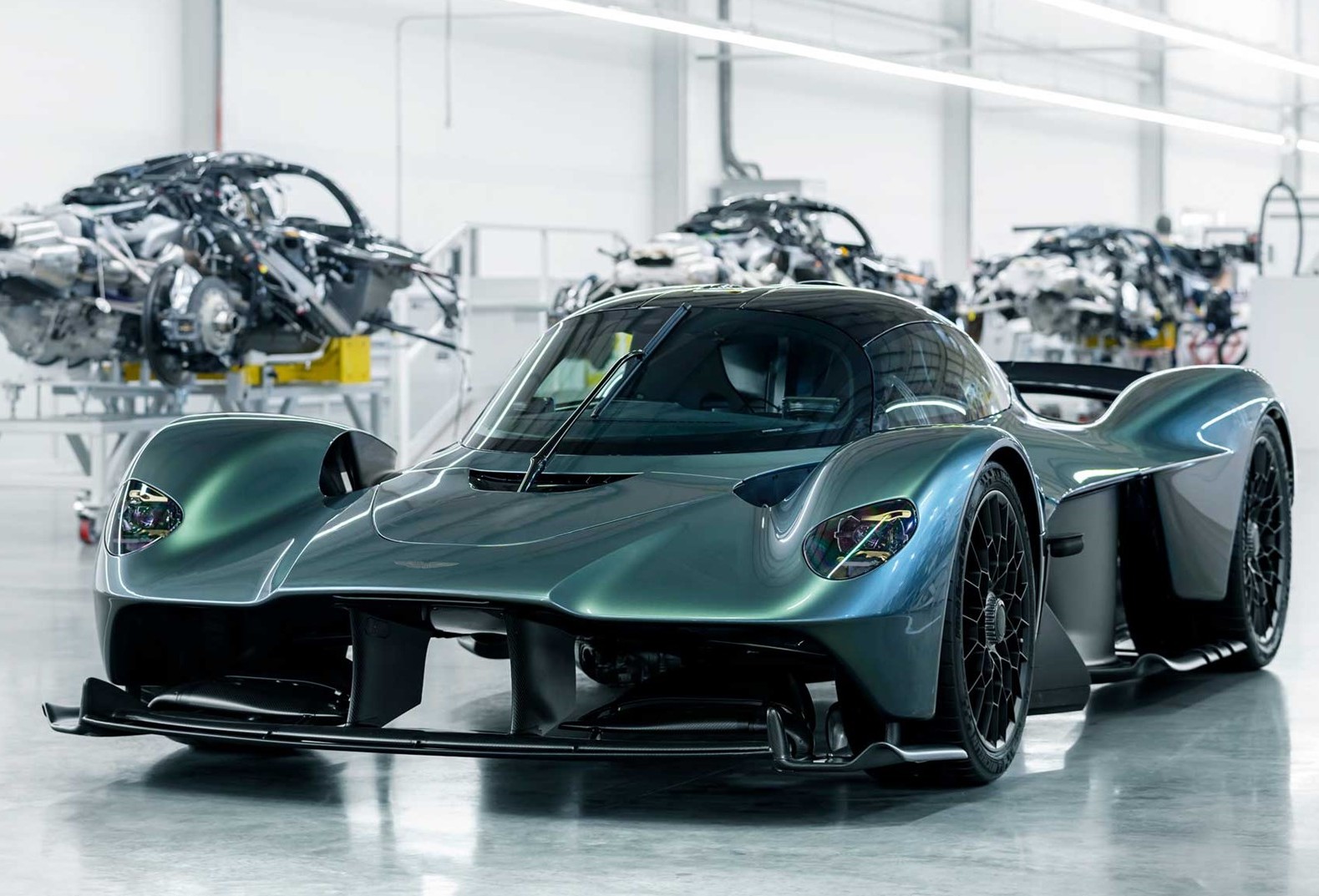
The Aston Martin Valkyrie is a hypercar with a hybrid power train. In November 2021 production of the Valkyrie finally began. Development took a bit longer than anticipated. This was mainly caused by the end of Aston Martin’s partnership with the Red Bull F1 racing team. The Valkyrie was born when Aston Martin was Red Bull’s engine sponsor. The idea was to jointly develop a hypercar with as many F1 characteristics as possible. But during the development, Aston Martin was purchased by Lawrence Stroll, is a Canadian billionaire, who earlier bought the Racing Point Formula 1 team. Stroll subsequently renamed Racing Point to Aston Martin and cancelled the deal with Red Bull. Happily, development of the Valkyrie continued under the new ownership, and it was very much worth the wait.
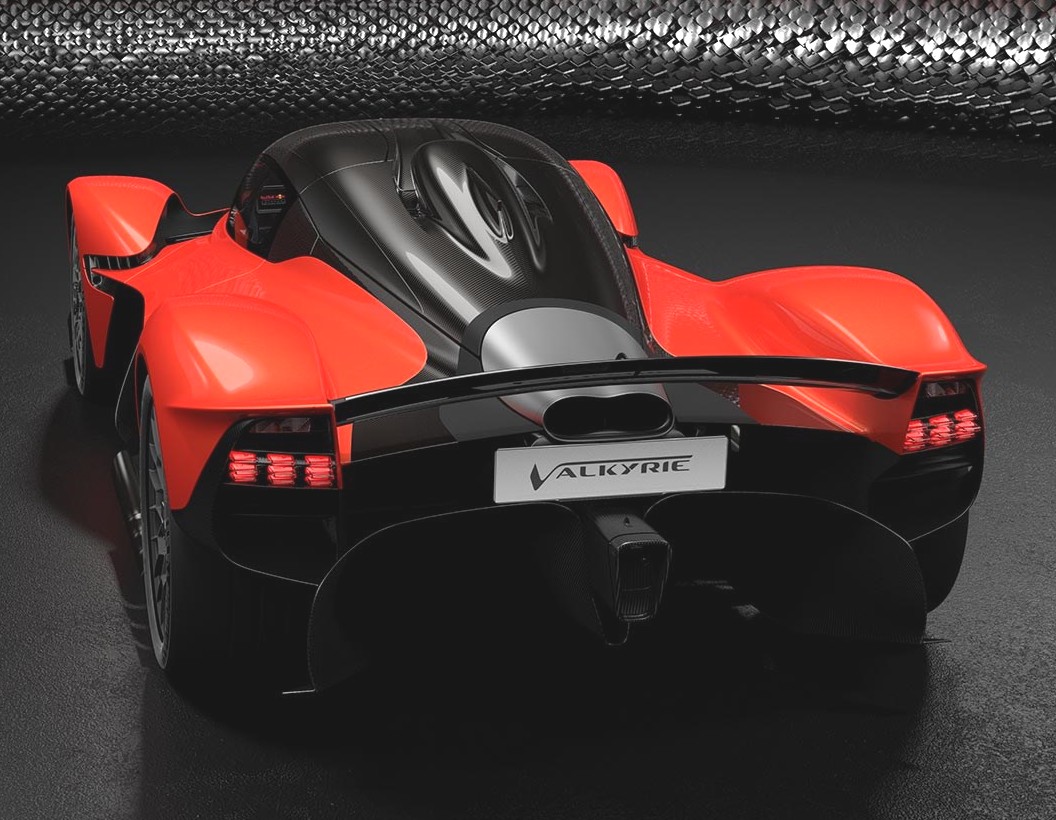
The Aston Martin Valkyrie is probably the most advanced hybrid hypercar on sale, priced at a cool $3.2 million. It has a unique one-piece carbon fiber body with a largely open underfloor. Suspension is very similar to F1 cars and it features a large front splitter and an even larger diffuser at the rear. All made of carbon fiber, or course.The cockpit is very narrow, with the aerodynamic bodywork flowing around the canopy. Aston Martin insists there is enough space for two but it seems very tight, better only bring good friends or the missus…
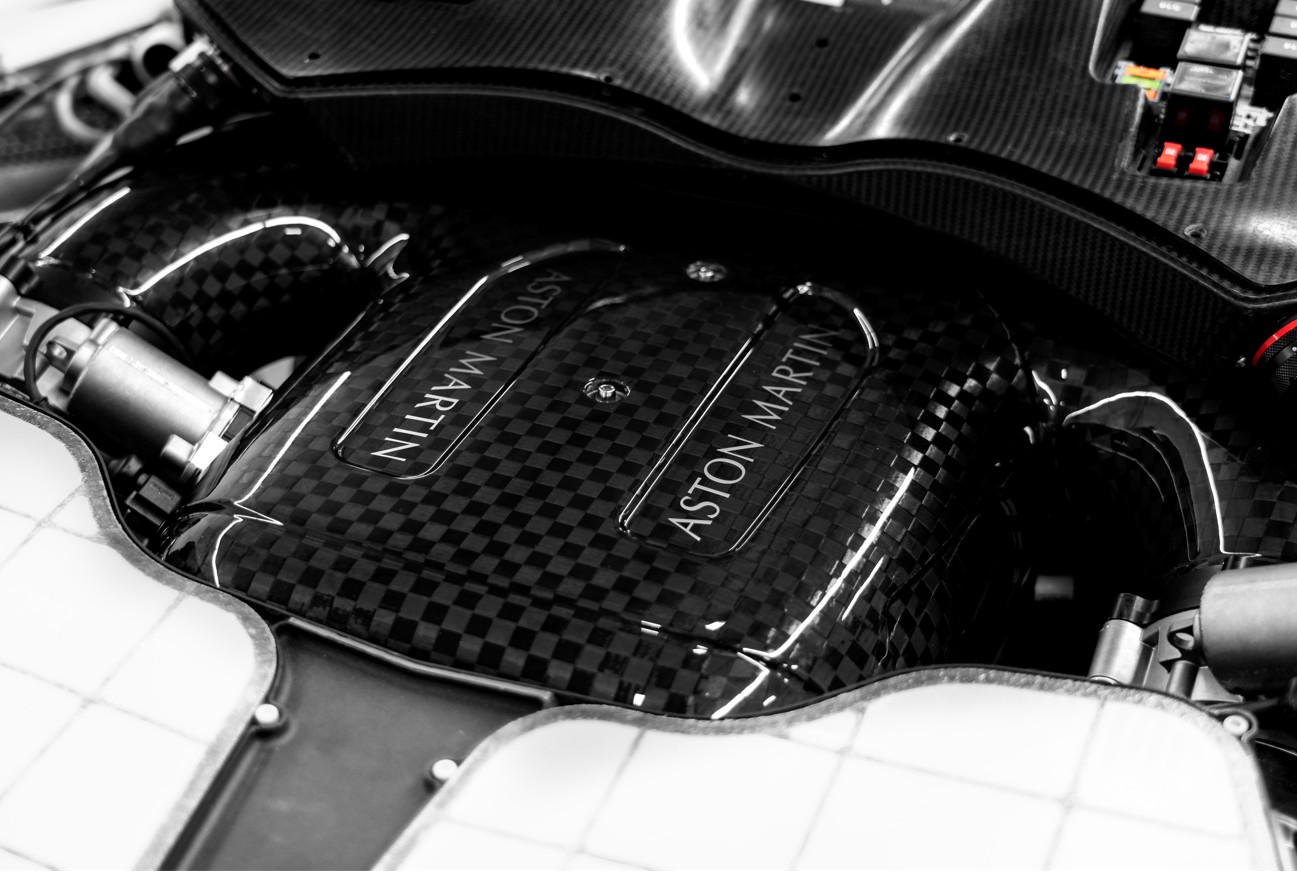
The main attraction of the Valkyrie is the hybrid power train, combining a V12 petrol engine with an F1-style electric KERS system for extra boosts. The 6.5 liter naturally aspirated V12 engine is supplied by Coshworth, it delivers 1,000 hp and revs to an insane 11,100 rpm. The KERS system adds another 160 hp. Combined system output is 1,160 hp and 900 Nm. Transmission is a seven-speed single-clutch sequential gearbox, sending all horses to the rear wheels. Thanks to all the carbon fiber, the entire car weighs only 1,030 kg. It does 0-60 mph in 2.6 seconds and it tops out at 217 mph.
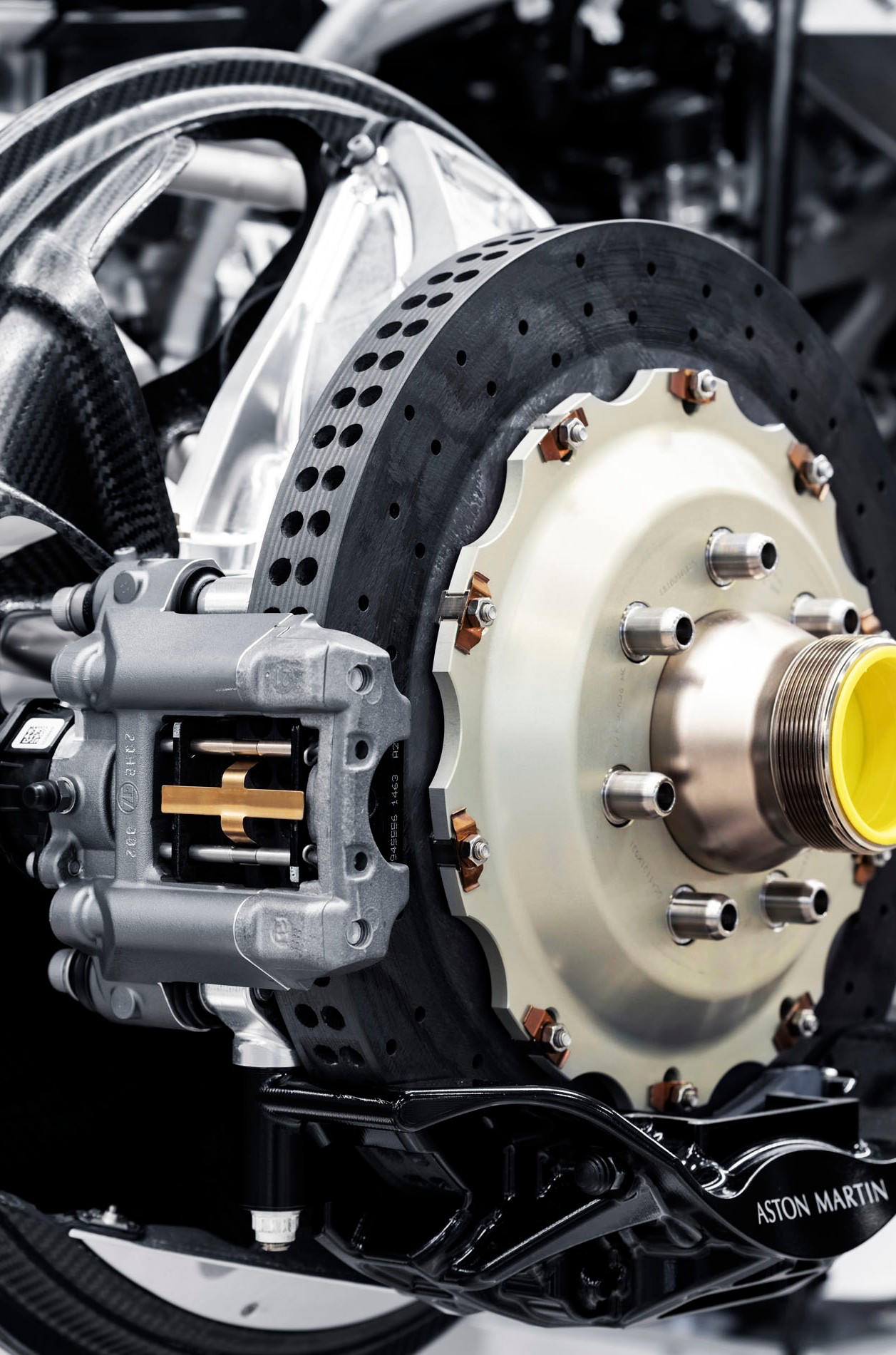
The high-tech brake system of the Aston Martin Valkyrie was developed by Alcon, a UK-based company that specializes in brake systems for race cars. Alcon also supplied the clutch for the Valkyrie. The brake discs are supplied by Surface Transforms, also from the UK, a company making carbon-ceramic brake discs for performance cars. The Valkyrie is fitted with carbon fiber reinforced carbon (CFRC) ventilated brake discs.
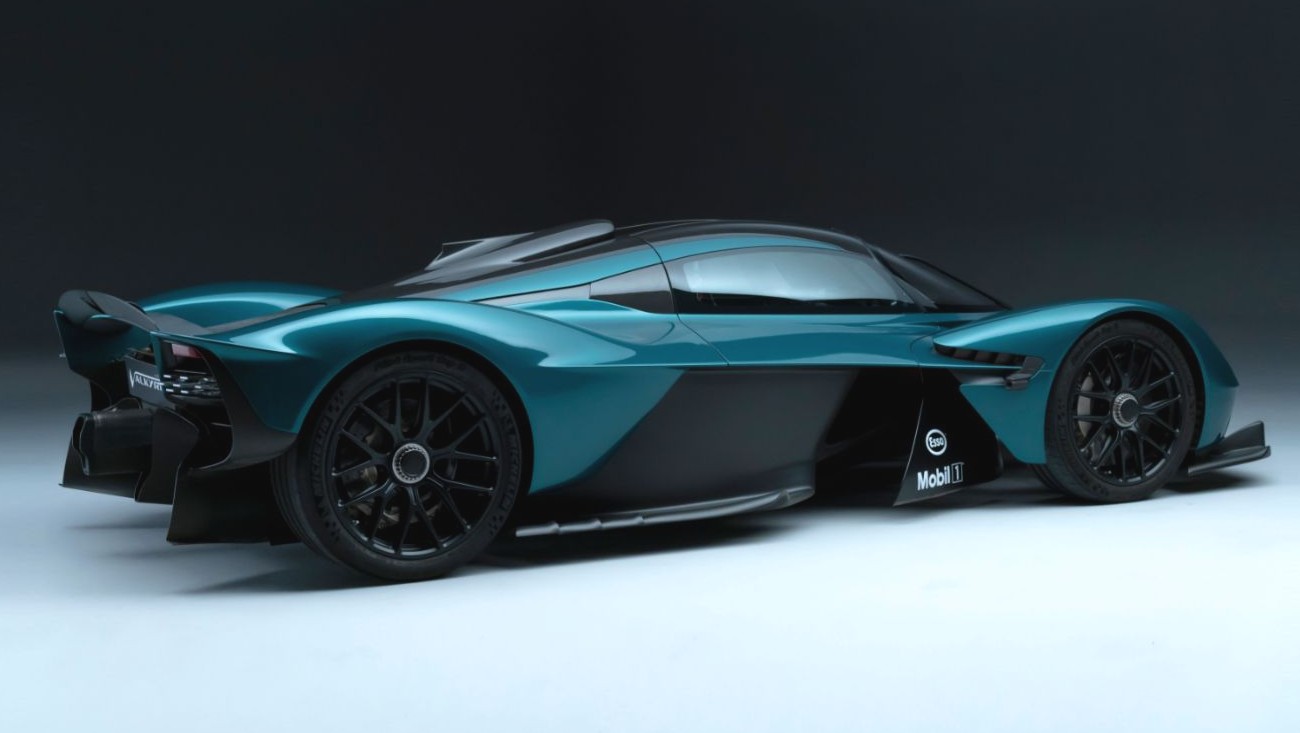
Aston Martin will only make 40 units of the Valkyrie, and amazingly it isn’t sold out yet. Even so, the company is developing new version of the Valkyrie, including:
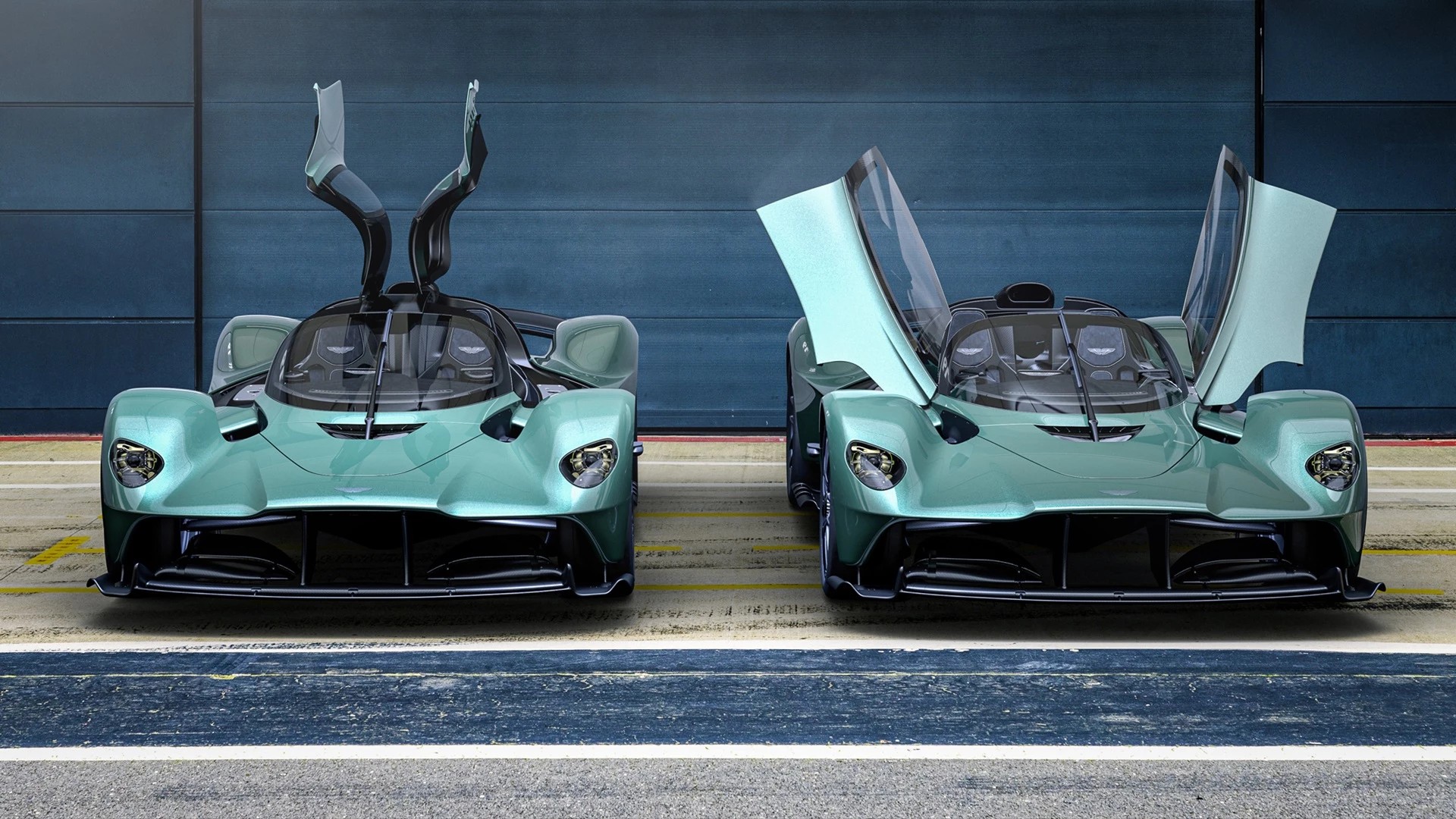
An open top spider-version, seen on the right. It has the same power train as the coupe and will launch in 2022.
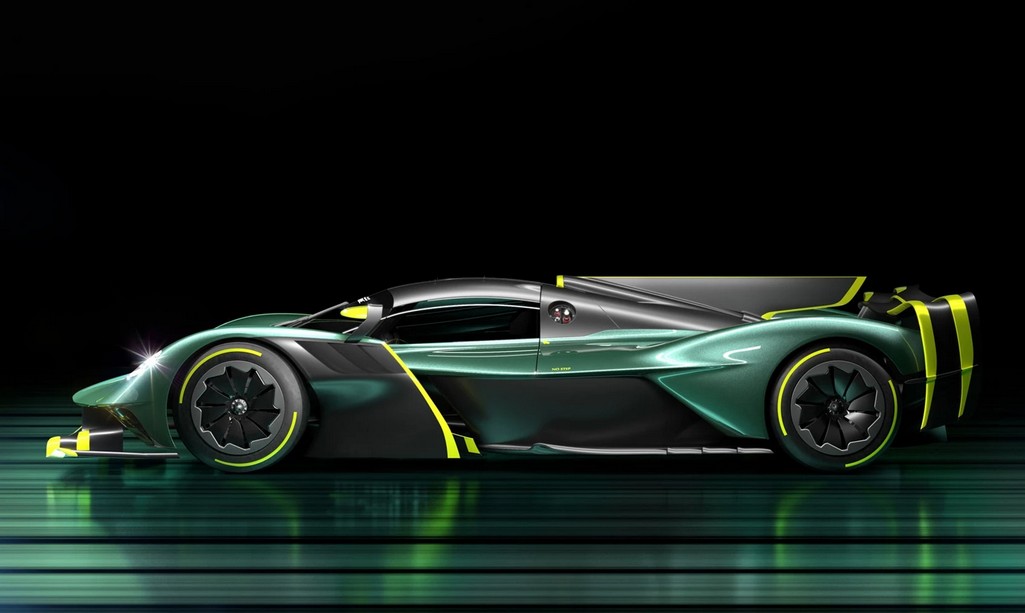
Next up is the AMR Pro, a crazy track-day toy with a longer wheelbase and an extensive additional aerodynamic package. The AMR Pro ditches the KERS system to save weight. It’ll hit the track in late 2022.